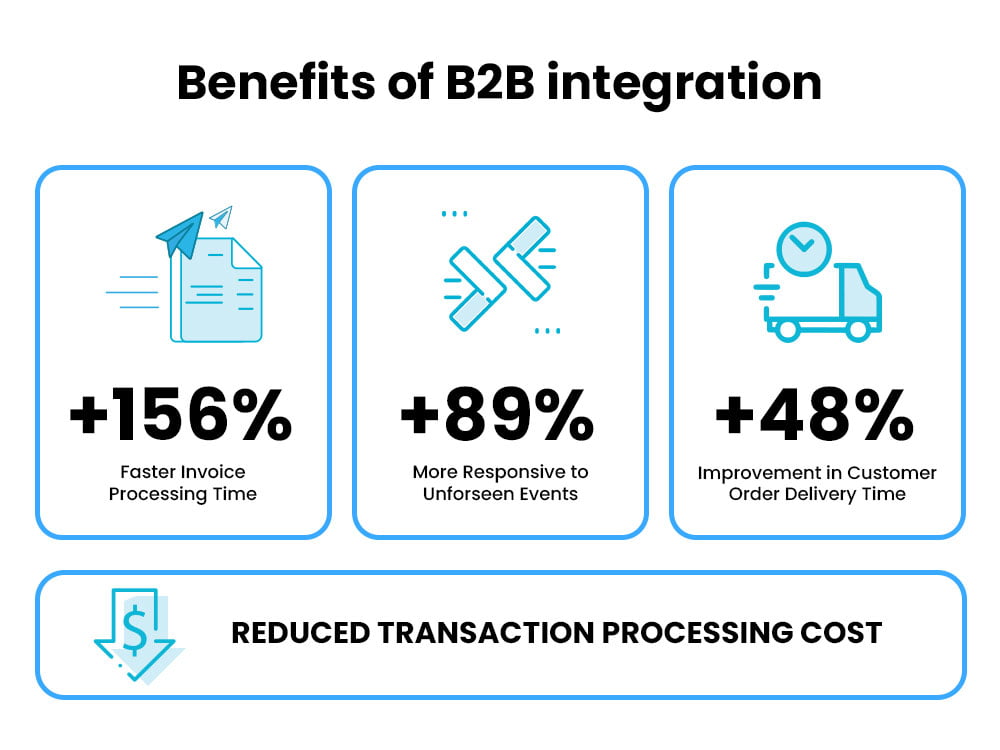Benefits of EDI in B2B Transactions
Have you ever wondered how most Fortune 500 enterprises are typically so good at communicating and conveying data with their trading partners? Well, the secret formula has now been unveiled and as it turns out, it’s the fact that these organizations were proactive in integrating EDI into their ERPs that they now enjoy a seamless data exchange within their ecosystem.
Here are just a few primary reasons why most companies in 2022 simply adore the perks brought to them via EDI implementation

1. Reduced Operating Costs
Make no mistake, the conventional means of data exchange were far costlier than what one would typically estimate. Firstly, replacing tonnes of paperwork with an electronic, virtual network will save you money which would otherwise be spent on printing these papers (not to mention the positive impact on the environment this would have).
Also, you no longer have to rely on hiring a bloated staff as these manual efforts for data entry and processing will be supplanted in favour of a far more efficient and precise tool. A smoother accounting and data exchanging process would not only diminish the overhead costs, but the improved customer experience as a result of using EDI software will also reap monetary benefits.
2. Fully Automated Workflows
“Process automation” is something that most enterprises have been seeking in order to reach that next level. Doing so not only paints a professional picture in the eyes of your patrons but ultimately reduces the time and effort it takes to interchange information, which is a blessing for any B2B organization.
An EDI application can fully automate previously manual processes so that the company-to-company, company-to-client, and employee-to-employee workflows are refined to meet the business needs of a modern enterprise. A fully automated approach to data processing enables you to focus on your core expertise and brings forth the opportunity to explore other lucrative business propositions.
3. Eliminate Human Errors & Inconsistencies
A reputable company simply can’t afford inconsistencies in its data entry when exchanging that information with its patrons or clients. However, that’s often a concern with businesses that still adopt a manual approach to these tasks. With manual data processing, it’s almost inevitable that the company will experience some inconsistencies or silly errors because that’s the nature of the beast.
On the other hand, integrating EDI processes into your ERPs is a surefire way of ensuring that your enterprise remains EDI compliant, and can relay the necessary information to its customers in a secure and precise fashion. EDI tools are capable of significantly augmenting your workflows whilst diminishing the threat of data silos.
4. Improved Client and Customer Experience
Let’s be honest, a company has to focus on several things in addition to its data entry and data exchange approach. However, if you spend the majority of your time and resources on the same, then how will you focus on other crucial elements of your business which will also influence your customer experience?
By cutting down your data processing time, you can finally afford to review and refine other aspects of the business (packaging, shipping, procurement, returns, etc) that influence your relationship with your trading partners. If the data is easily accessible and is stored securely within your ERP, high-profile clients will naturally feel more assured in collaborating with your enterprise.
You can contact us or email us directly at [email protected] for any query related to EDI b2b integration.






